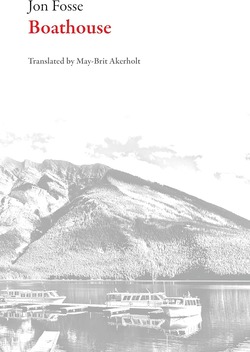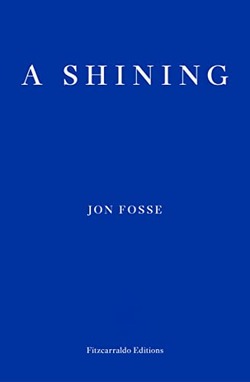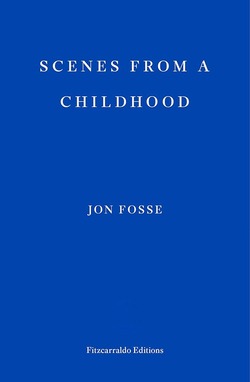“I don’t go out anymore, a restlessness has come over me, and I don’t go out.” is how Baard, the narrator of Jon Fosse’s Boathouse (1989, tr: May-Brit Akerholt, 2017), begins his minimal account of the seismic events that collided with his small life. What he means by restlessness is never quite clear, but it has driven him from all that he would do – help his mother shop, play occasional guitar, and read books from the library – to staying at home, in his attic room, and writing a novel, purportedly the one we are reading.
In this, Baard is our typical Fossean loner, a speck in the emptiness of the Norwegian fjords. The epitome of failure, he’s a thirty-something that still lives with his mother and has never had an education nor held full-term employment. The only consistent thing is that he has played in bands. Until recently he played, sidelined, in a band called Torkjell’s Duo with local high school teacher, Torkjell. But he once played with his friend Knut many years before, when they used to practise down by an abandoned boathouse. And it’s this past that comes to the fore when, one summer, Knut and his family holiday in the area and they meet for the first time in years.
Since those childhood days, Knut has moved away, got married, had two children, and become a music teacher while Baard is the same old Baard. It’s been about ten years since they last met and anyone who knows the distance past friendships can attain, when the silences are awkward and there is little to say, will recognise the discomfort in this reunion. However, it’s not all bad as Knut’s wife, whose name we never learn, seems to take a shine to Baard, and the story spreads out, in a minimalist way, to explore both the past and an unconventional love triangle that has, at its heart, darker territories to fish.
True to Fosse’s style, the prose is hypnotic in its repetition, although this time there’s the sense that Baard is trying to process past and present, coming at them from different angles but unable to grasp his underlying malaise. But repetition is also at the heart of the story’s structure, with the first, and longest section, giving Baard’s point of view on events before he returns in the second section to view Knut’s side of the story, albeit still in first person. One of the things that Fosse maintains across these tellings is a heavy sense of dread, tightening the story ever more taut until, in a short third coda, the book is tied up with devastating consequences.
In its recollection of childhood, with guitars and youth centres, it feels like a more coherent take on some of the vignettes from Scenes From A Childhood (1994, tr: Damion Searls, 2018), but also a lengthier riff on How It Started (1987, tr: Damion Searls, 2013) in its experience of both attraction and shyness around the opposite sex. While Boathouse shares the isolated world of other Fosse books, where the occasional house overlooks placid lakes and mountains, its internal landscape is different. Inside minds, the most internal of feelings, however minimal, can have seismic repercussions that require us to cope, whether we can or not. And Boathouse shows a man trying even though his whole life suggests he has never tried before.



